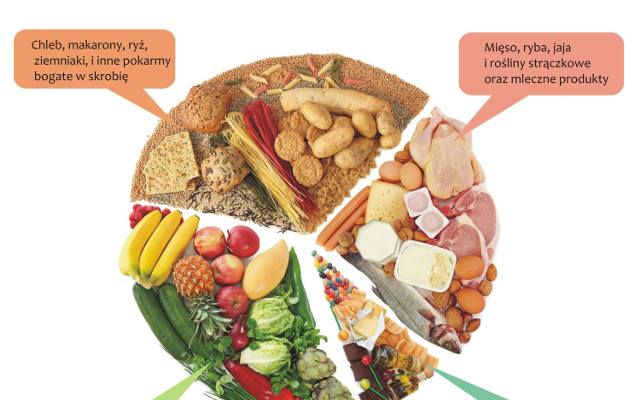 How to develop a healthy and complete diet
How to develop a healthy and complete diet
Each food we eat consists of many ingredients, and a complex diet is necessary to provide the body with all the necessary elements. Although you can supplement the need for vitamins and trace elements by taking appropriately composed preparations in the form of tablets, it's fats, proteins, carbohydrates and fiber must be supplied to the body in the form of solid or liquid food. Carbohydrates and fats are the main energy foods. Proteins are essential in the process of tissue growth and regeneration.
The following list of recommended weekly standards of consumption of individual products for one person, based on the recommendations of the NACNE report from 1983 r. It doesn't matter, that some of these products must be excluded by allergy sufferers. With the development of an appropriate diet, they can be replaced with others. However, too much variety within one meal is not recommended for allergy sufferers, it is within a week that it is possible to achieve a great deal of variety without exposing yourself to new sensitivities. After searching for products, which should be avoided, you need to check the nutritional value fit, look at the micronutrient table on the website 10 and decide on the quantity of one or the replacement of other products.
Weekly nutritional norms for one person
Fish: about 275 g weight of non-filleted fish. Oily fish, such as sardines or salmon, contain vitamins A and D.. All fish are good sources of protein and calcium.
Meat: lean, above 1 kg of various types of meat (weighed together with bones and fat). Meat contains protein, fat, amino acids, iron, vitamin PP and calcium. The liver is rich in vitamin A., also contains vitamin D..
Vegetables: vegetable preserves – 275 g. They will mainly be a variety, because they lose significant amounts of vitamins in the production process. Canned beans contain protein and carbohydrates. In principle, however, you should avoid canning, especially industrially produced.
Fresh greens and other vegetables – 1,25 kg. Beans and peas provide some protein. Green leafy vegetables provide vitamins C and A and folic acid. Carrots contain vitamin A.. All green vegetables are a source of vitamins, minerals (mainly potassium) and trace elements.
Frozen vegetables are basically a great variety to a meal, as the freezing process reduces the vitamin content.
Potatoes- 1,5 kg. They provide carbohydrates, potassium and small amounts of vitamins.
Eggs: 2-3. They contain protein, fat, calcium, vitamin A., D, BI and B2 and iron. Meat is an equivalent source of these ingredients for people allergic to eggs, fish, butter, watercress, liver and carrots.
Milk: 1,15 l. Provides carbohydrates and some protein, calcium and vitamin A.. Potatoes are an equivalent source of these ingredients for people allergic to milk, meat, fish and carrots.
